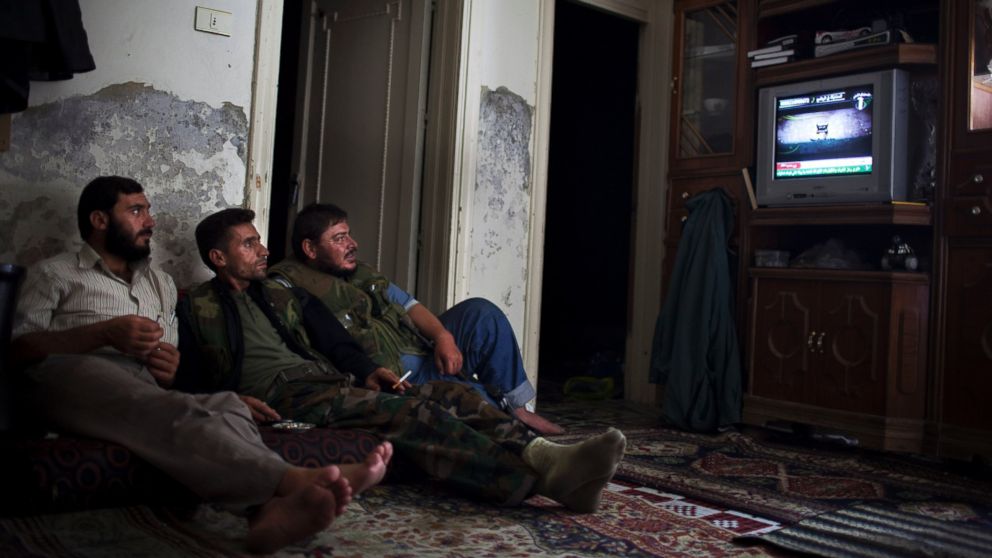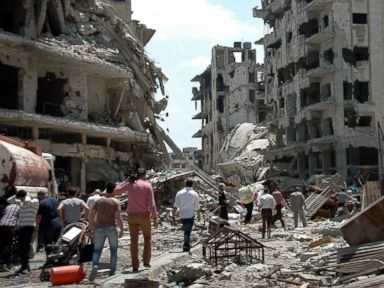
In Syria, soccer is a universal language that has crossed sectarian (and battle) lines since the start of the country’s three-year conflict. Fighters watch games at night, in between action; children play in the streets of Aleppo and Homs and as far away as northern Lebanon. Abdelbaset Sarout, the popular national team goalie, has become a rebel icon.
But as the sport’s biggest global event looms, skyrocketing television subscription fees could mean much of the country, already cut off from most global culture, will be unable to watch the 2014 World Cup, kicking off June 12 in Brazil.

Qatar’s beIN SPORTS – the holder of exclusive rights to broadcast the games in Syria – has rolled out special receivers with built-in smart cards for those wishing to watch the games. But they’ll be sold at an astronomical 57,000 pounds ($256), which will leave most civilians (a government salary now averages 20,000 pounds per month) in the dark.
In 2010, the year before the conflict began, World Cup subscription fees, charged by the same company, were a more modest 5,000 pounds ($100).
Read: US: American Citizen “Involved” in Suicide Bombing in Syria
Read: Sharia Law Interrupts a Woman’s Wedding
Authorized sellers of the receivers, concentrated in Damascus, attribute the jump in price to high wartime taxes and transportation fees. The subscription fee set by beIN SPORTS is 44,000 Syrian pounds; once factored, the total bill is bumped up to 57,000.
Those able to afford the fee will have to register at an authorized dealer, then wait between 10 and 20 days for their card; those wanting to jump the line can pay more for “priority service” that runs between 63,000 and 70,000 pounds. In absence of government regulation of the cards’ sales, prices could climb between now and kickoff.
The fees have forced many to give up on the idea of watching games from their homes. But Syrians have grown more industrious since the last World Cup. In one Damascus building, young men have decided to pool money in order to buy a receiver with a subscription card. Their plan involves running cables to each apartment so their neighbors can all watch from home.
Khaled, a Damascus taxi driver, says he always looks forward to the Cup. “The exorbitant subscription fees will not stand in my way,” he says. “I may not have the financial capabilities to subscribe, but I do have the technical skills to decipher the encoding. These subscription fees are a way of making this event exclusive to a certain class. It’s solely for profit.”
A technician working at a al-Souwaqaya shop selling and programming receivers says there are options available to soccer lovers.
“There are many who complain from the high subscription fees,” he says. “But I have worked hard during the last World Cup to decipher the encoding. We were able to decode the signals of some European channels and satellites.”
He does admit it used to be easier. “In 2010, our company had the Super Gold offer for 4,000 pounds for a yearly subscription and one-year guarantee. The only condition was the customer had to have a receiver that is linked to the internet so it would adjust the frequencies automatically.”
Like so much else in today’s Syria, some fans will have to rely on the international community: the technician recommends buying a dish that can pick up on satellites broadcasting the tournament from South America, Turkey and Europe.






